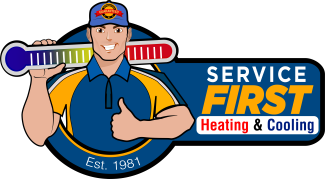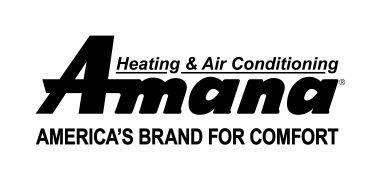How Does Your HVAC System
Affect Indoor Air Quality?
Is the air you’re breathing at home clean? If not, your HVAC system may be to blame. If you want your family to breathe safely, you need to understand what indoor air quality is and your HVAC system’s role.
In this guide, you’ll learn about the many problems associated with poor air quality. You’ll also learn how your heating system is involved and what changes may help you breathe better. Let’s start by looking at the meaning of indoor air quality and why it’s important.
What is Indoor Air Quality, and Why is it Important?
Indoor Air Quality (IAQ) refers to the quality of air in and around your home. Air is considered to be of good quality if it is mostly free of contaminants. Contaminants may include biological pollutants such as mold and dust mites or chemical pollutants such as lead and radon.
Good air quality in your home is important because it directly affects your comfort and health. The negative effects of poor air quality can be divided between those that appear in the short term and those that occur after long-term exposure.
Short-term effects of poor indoor air quality
Poor air quality can affect you after the first time that you’ve been exposed to it. If your home has poor air quality, you may experience:
Irritation of the eyes, nose, and throat
Headaches
Dizziness
Fatigue
Cold or flu-like symptoms
These symptoms may disappear quickly if you’re no longer exposed to the contaminants. If you experience symptoms like these, and they fade as soon as you leave your home, it may be evidence that they’re caused by poor indoor air quality.
Long-term effects of poor indoor air quality
Long-term exposure to air pollutants can result in severe medical conditions that may not appear for many years. Research has shown that some air pollutants may be associated with:
Respiratory diseases including asthma and emphysema
Heart disease
Certain cancers
Due to these risks, you should attempt to resolve poor indoor air quality as soon as possible. You should consider it a priority even if you are not experiencing any symptoms right now.
Obviously, air quality is important, but it can be hard to know where to get started. Your home heating system is a great starting point because it plays a significant role in your air quality.
What Does Your Home Heating System Have to Do with Air Quality?
Your home heating system has a direct relationship to the indoor air quality of your home. Heating systems have the potential to either improve the quality of your air or—when improperly designed or maintained—introduce additional pollutants to it that can harm your family.
Many home furnaces operate on fuels such as natural gas, propane, or oil. When your home heating system is poorly designed, it may leak fuel gasses into your home. The same can happen if you fail to provide proper maintenance.
The ventilation system for your home heater can also play a significant role. A heating system should draw in fresh air from the outside and distribute it through clean vents.
When these systems aren’t working properly, a heating system can spread dust mites, mold, and other threats. Fortunately, it’s not difficult to resolve these problems.
How to Improve Indoor Air Quality Issues Caused by Your HVAC System
You can take action today to improve the air quality in your home. Taking the following steps with your home heating system can result in fast improvements.
Choose an HVAC System Built for Air Purity
You can choose home heating systems that are built for air purity. If your system is between 15-25 years, it is reaching the end of its lifespan. It may no longer be filtering the air as well as it should, and it likely doesn’t have modern filtering features.
Systems such as the iWave-R include advanced air cleaning features that go far beyond the standard filters available on the market. This system purifies the air moving through the system by forcing the air through positive and negative ions that kill mold, bacteria, and viruses.
“Winterize” Your Home in Cold Months
Winterizing your home refers to a series of steps that you can take to prepare or adjust your home heating system for the winter. The following steps can help you breathe healthier during the winter months:
Eliminate drafts that occur around doors and windows
Seal and repair sources of moisture such as pipe leaks
Ventilate your indoor air in additional ways, such as by running bathroom and kitchen exhaust fans more often
Clean Your Ducts
Dust, mold, and other pollutants that occur naturally in the home may accumulate in your ducts, even if your filter is working as intended. Experts recommend that you clean your ducts every 3-5 years to eliminate buildup.
Duct cleaning is a professional service that is widely available all over Michigan.
Change Your Air Filters on a Regular Basis
One of the easiest steps you can take to protect home air quality is to change your air filter regularly. The filter is the component that’s responsible for capturing pollutants in the air so that they don’t continue to travel through your home.
Replacing an air filter typically only takes minutes. You can find instructions on replacing your air filters in the owner’s manual of your heating system.
How to Check Air Quality in Your Home
The above solutions can help you resolve air purity problems in your home. Before you invest in any of them, you may want to know if they’re necessary. Let’s look at how to measure indoor air quality.
Learning how to measure indoor air quality may help you decide if you need changes now. Unfortunately, indoor air quality can’t be tested with standard household tools. You’ll need to shop for residential air quality testing tools.
These tools are often known as indoor air quality monitors. These monitors test for formaldehyde, volatile organic compounds, and other pollutants depending on the model. You can also purchase mold test kits from most hardware stores.
You can also pay for professional air quality testing. A professional team may be able to provide better testing. This service is offered by HVAC companies all over Michigan.
Start Protecting Your Indoor Air Quality Today
Now you understand the importance of indoor air quality. You’ve also learned what role your heating system plays and how you can start to make some improvements.
Your next step may be to have a professional team install a newer, safer HVAC system for your home. Call us today for a consultation or a new installation so that you and your family can breathe easier.

